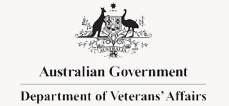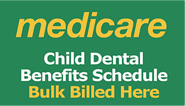- New Patient Special for $150
- Terms and Conditions Apply
- Learn More!

Wisdom teeth extractions are an incredibly common procedure that are required when wisdom teeth grow and produce overcrowding of other teeth in the mouth. Understanding the recovery process following wisdom teeth extraction is incredibly important because, without proper care, mouth tissues can become inflamed and infection can set in, causing long-term health issues. In this blog we discuss the immediate period following extraction, dietary restrictions, oral hygiene and care, how to manage pain and discomfort and how to identify warning signs that something is amiss.
Immediately after a wisdom teeth extraction procedure, the gums surrounding the site where the wisdom teeth were located will be painful, puffy, red and swollen. It’s very important to follow the dentist’s instructions precisely following an extraction. The dentist will provide gauze to absorb any bleeding that results from the procedure and this should be left in until the bleeding stops. Depending on the dentist’s orders, you may be able to take a paracetamol or ibuprofen if you experience ongoing pain after the treatment is finished.
During the recovery period, only soft foods should be eaten. Bread, pasta and rice are ideal foods to eat after a wisdom teeth extraction. It’s best to avoid hard or crunchy foods like nuts, well-cooked meat and cereal because these can put undesirable pressure on the site of the extraction.
Gauze should be used to carefully clean the site of extraction to remove any congealed blood. Brushing and flossing should be done extremely delicately to avoid placing undue stress on the area where the wisdom teeth used to live. Mouthwash is a great way to reduce the risk of infection following a wisdom teeth extraction process and can help keep the mouth free from bacteria.
If you experience serious pain after your procedure, follow the dentist’s instructions precisely regarding consumption of any pain medication. Some pain meds cause blood to thin which can cause hemorrhaging if the site of extraction is unduly stimulated. If your dentist allows you to take pain medication, only do so exactly as prescribed. A cold compress can easily be as effective as taking a pill and should be used if your dentist recommends you avoid taking medicine to manage pain.
Wisdom tooth extraction is generally a safe procedure, but like any surgery, it carries some potential risks and complications. It’s essential for patients to be aware of these risks. Common complications include dry socket and infection. Signs of dry socket include: severe and throbbing pain radiating from the extraction site, a foul taste or odor in the mouth or a visible empty socket with no blood clot. Signs of infection include: swelling that worsens after the first few days, persistent and increasing pain, elevated body temperature (fever or, pus or discharge from the surgical site. If you experience any of these symptoms, please call us right away to prevent further oral health complications.
Looking to enjoy a more-comfortable smile full of healthy teeth? Book a consultation for any dental treatment you need at Central Brunswick Dental Centre today.






Fill in the form and our friendly team will be in touch with you monumentarily
Sed ut perspiciatis unde omnis iste natus error sit voluptatem accusantium dolor emquesit voluptatem laudantiu.
Dr Jacky is extremely knowledgeable around teeth and gum health ! Extremely professional and makes you feel comfortable and makes you laugh . Lauren, the dental nurse, is also all above! I'm so happy ... Read More
Highly recommended Dr.Jacky. He is very caring and skillful during the filling process since I have been very nervous with “dentist”. After the work done and the next day I don’t feel any pain o... Read More
I have been going here for several years and so now does my family of all ages. We all use the different dentists and are all happy. I use Dr Jacky who is very professional, honest, caring and most ... Read More
BEST DENTIST IN BRISBANE! Had two fillings today, Dr Jacky is so attention to detail , very kind and generous! Will definitely look after my teeth 🦷 🦷
Simply the best and most comfortable procedures I’ve ever had. I always feel welcome and relaxed in the hands of Bryce and Lauren in this cooly designed , simple yet highly professional clinic. Alwa... Read More
